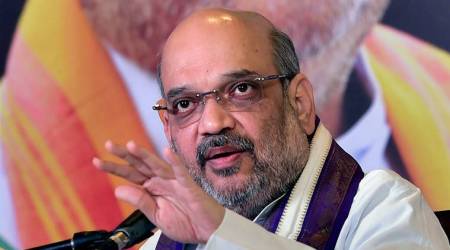 The Supreme Court of India (File Photo)
The Supreme Court of India (File Photo)
The Supreme Court on Tuesday “set aside” the practice of triple talaq holding it unconstitutional.
While three judges — Justices Kurian Joseph, R F Nariman and U U Lalit — of the five-judge Constitution bench agreed that it should be set aside, two others — Chief Justice of India J S Khehar and Justice Abdul Nazeer — were of the view that the practice was part of Muslim personal law and hence the court could not interfere. The minority judgment granted six months injunction on the practice and asked Parliament to make a law to deal with it.
Disagreeing with the minority judgment, Justice Kurian said, “Triple talaq is against the tenets of the Holy Quran and hence violates Shariat… It is extremely difficult to agree with the CJI that triple talaq is integral to the practice of Islam. What is bad in Quran cannot be part of Shariah.”
Justice Nariman said the Muslim Personal Law (Shariat) Application Act of 1937 “recognises and enforces triple talaq” and so it falls within the definition of law in force. “Triple Talaq is manifestly arbitrary” and was violative of Article 14 (the Right to Equality) and did not enjoy the protection of Article 25(1) of the Constitution, he said.
Read: BJP welcomes SC’s instant triple talaq verdict, says it protects fundamental rights of Muslim women
CJI Khehar, who delivered the minority view, said, “Triple talaq was consequent of Muslim personal law and enjoys the status of fundamental rights.” The court cannot set it aside and the appropriate way was for Parliament to make a law to deal with it, he added. “Legal interpretation is what made changes in personal laws,” the CJI said, and directed the Union of India to consider appropriate legislation particularly with regard to triple talaq.
The order was delivered after a batch of petitions by Muslim women, who were victims of the practice, were heard in the court.
Read the full verdict by the Supreme Court on triple talaq here:
SC verdict on triple talaq by The Indian Express on Scribd

